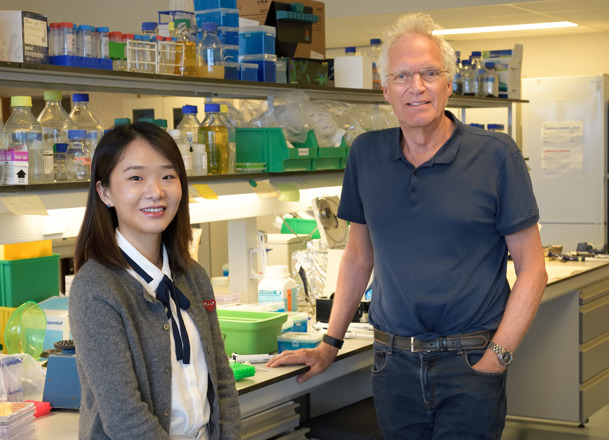European IMI-consortium to study therapy resistance in cancer
2 sep. 2021 15:30
A major consortium led by Oncode and AstraZeneca will study treatment resistance in cancer over the coming five years, thanks to funding provided by the European Innovative Medicines Initiatives. Rene Bernards will be representing the NKI. His lab will investigate ways to detect vulnerabilities of these resistant cells.

Rene Bernards: “Many therapies against cancer target the cells that are actively dividing. Over the last two to three years, we discovered that most cancer cells die quickly that way, but some cancer cells manage to avoid this effect by retreating from the cell cycle. The cells stop dividing, which means that the drug does not affect them.”
These cells survive, lie dormant for a while, and then start dividing again. “That means that the efficacy of such a therapy is limited,” Bernards says. “But we currently don’t know enough about these resistant cancer cells: what’s their secret?”
But there are several things that we have already uncovered. These cells, called persister cells, differ from regular, non-resistant cancer cells in terms of their gene expression programming. And they seem to be present in the tumor from the very beginning.
Bernards: “Some of the important questions we are trying to find answers to through this consortium are: are all persister cells the same, or are we dealing with various types?” Single-cell sequencing will be used to investigate the heterogeneity of these recalcitrant cancer cells.
But that won’t take place at the NKI. Rene Bernards and postdoc Mengnuo Chen, who recently moved from Shanghai to Amsterdam, want to find an answer to a different but equally important question in their lab: what are the vulnerabilities of these persister cells and how can these be exploited therapeutically?
------
The consortium, PERSIST-SEQ, is named after these persister cells and will examine cells that are resistant to chemotherapy as well as targeted therapy.
Read more at Oncode.